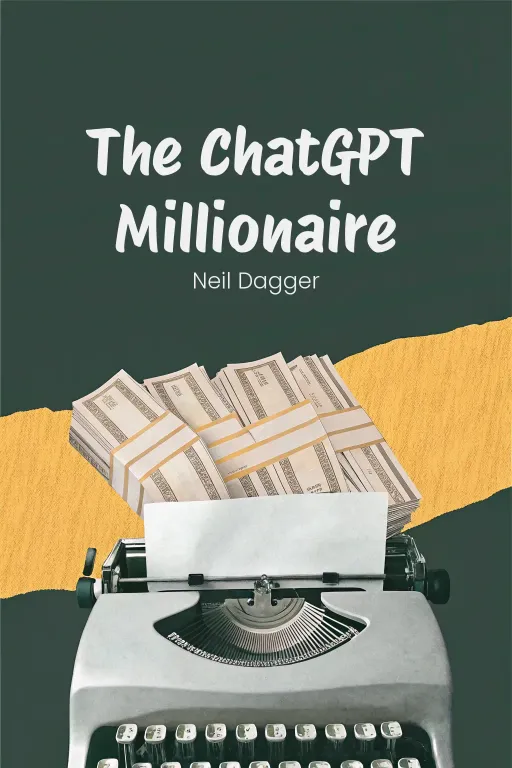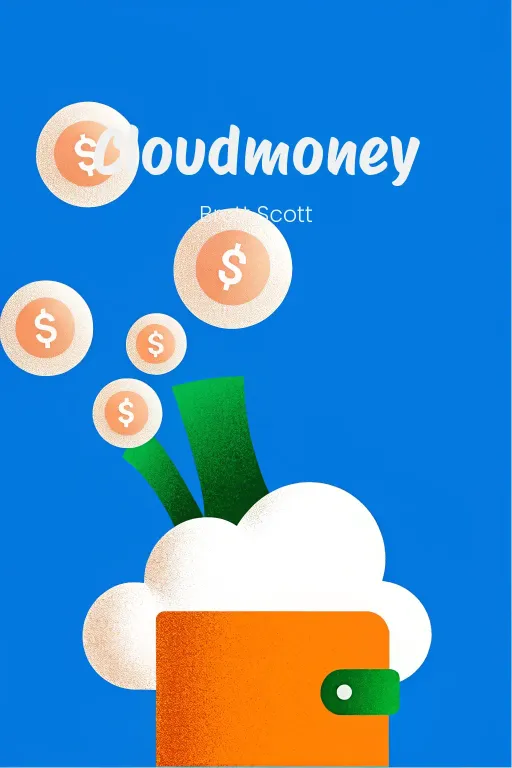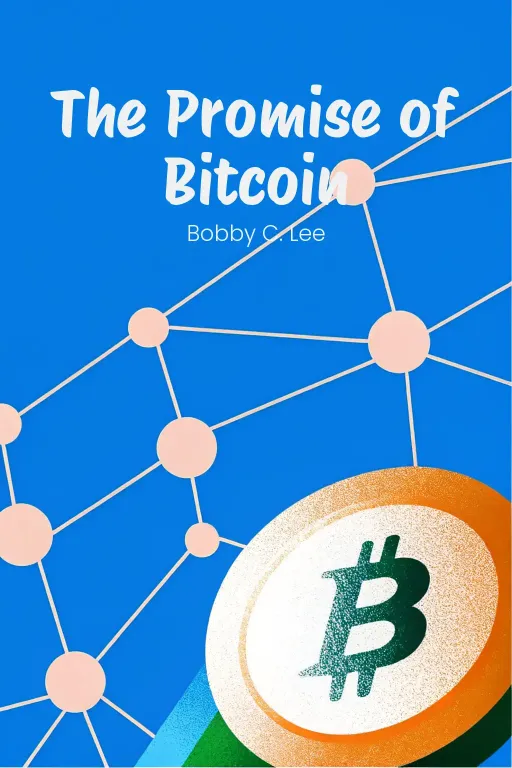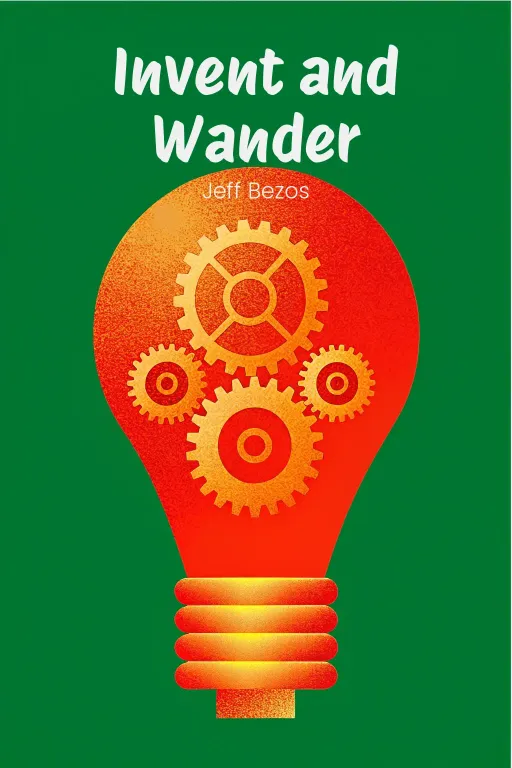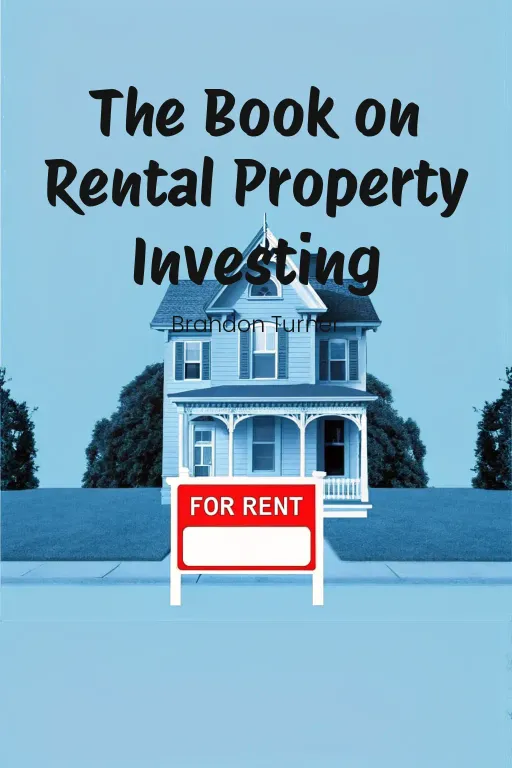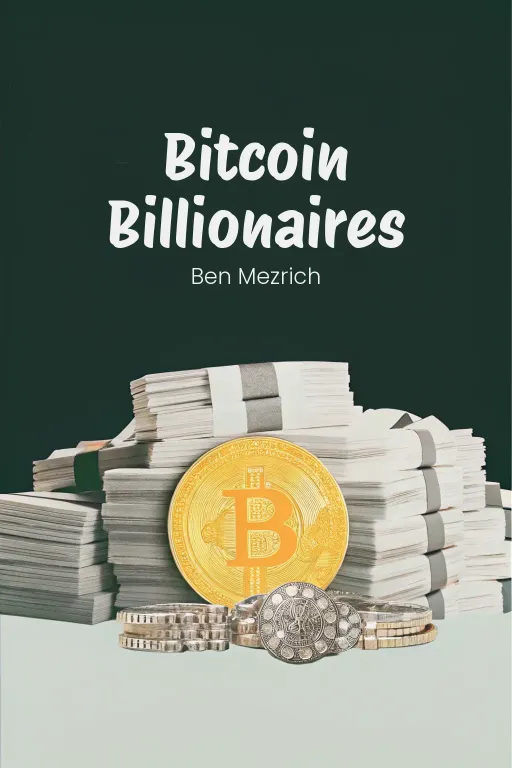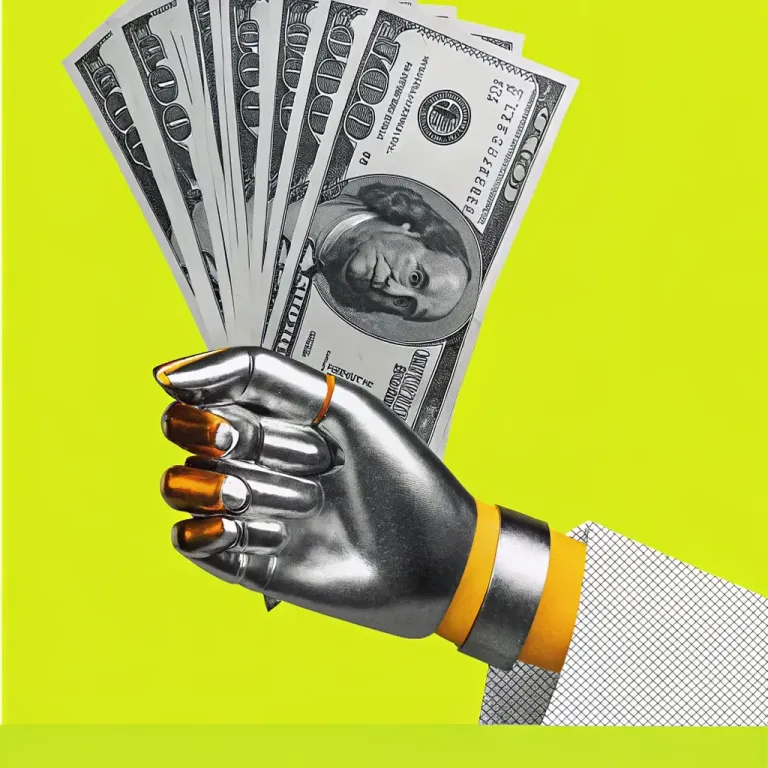
AI Side Hustle Secrets: Real $ or Hype?
Podcast by Wired In with Josh and Drew
Making Money Online Has Never Been this EASY
AI Side Hustle Secrets: Real $ or Hype?
Part 1
Josh: Hey everyone, welcome to the show! Today we're jumping into something that's really changing the game for how people work, earn, and create online: ChatGPT. Can you imagine having an AI assistant that could free up hours of your time, spark all sorts of new ideas, and even help you generate income? Sounds pretty good, huh? Drew: Woah, hold on a second. Are you seriously telling me that a chatbot, just a regular chatbot, is about to revolutionize how we make money? I mean, I love a good shortcut as much as anyone, but isn't that setting expectations a tad high? Josh: Well, that's kind of what Neil Dagger's book, The ChatGPT Millionaire: Making Money Online Has Never Been This Easy, claims. It's not just pie-in-the-sky dreaming; it's about actually learning how to use ChatGPT effectively. The book guides you through turning AI productivity into real, tangible income. Whether you're freelancing, creating content online, or looking into passive income, it gives you step-by-step examples and actionable prompts to get going. Drew: Okay, I'm listening. But where's the catch? AI isn’t some magical fix-all, so I’m assuming the author also talks about the potential pitfalls and drawbacks, right? Josh: Exactly! Today, we're breaking it all down into three parts. First, we’ll talk about ChatGPT's rapid rise and why it's such a big deal. Then, we'll get into the practical applications – from creating content to automating income. And finally, we'll get into the important stuff – the ethical considerations, the limitations, and how to make sure human creativity still stays in the picture. Drew: So, from “wow” to “how,” to “should we even be doing this?” Sounds like a plan. Let's find out if this is really a million-dollar idea, or just a lot of marketing hype.
Introduction to ChatGPT and Its Potential
Part 2
Josh: Okay, Drew, let's jump right in. What I found truly groundbreaking about ChatGPT is its rapid adoption. I mean, a million users in just five days? Even Netflix and Twitter didn't see that kind of growth early on. Drew: Okay, impressive numbers. But can you explain why ChatGPT is so special? I mean, is it just a fancy text generator? Josh: Well, that's simplifying it a bit. Think of ChatGPT as a tool that understands the “context” of your requests. The responses are cohesive, adaptable, and even creative. Instead of just Googling, you could ask it to summarize a concept and rewrite it for, say, kindergarteners or tech investors. Drew: So, it's like an intern without the coffee breaks or Gen Z sarcasm. Handy, sure, but why is it revolutionary? How's it different from other AI assistants? Josh: It comes down to “accessibility” and versatility. Traditionally, advanced AI has been too expensive, technically demanding, or limited to specific fields. ChatGPT puts a powerful tool in everyone's hands – freelancers, marketers, small business owners, students. It democratizes what was once exclusive to large firms or specialists. Drew: Okay, it's scalable and user-friendly. But hype isn't enough. Where does ChatGPT “really” shine in practice? Josh: That's where the applications come in, they are practical. Let's say you're a small business owner wearing many hats. You can have ChatGPT generate "Write a follow-up email for prospective clients interested in our marketing services." That will save hours. Drew: So, useful for tedious tasks, but can it do more? Could someone build or boost a business using just ChatGPT? Josh: Absolutely. One example from the book that comes to mind is a freelance content creator who used ChatGPT for first drafts, SEO, and social media plans. Instead of burning out, they scaled their workload, took on more clients, and basically doubled their income within months. Drew: Doubling income sounds great, but – cynicism alert – isn't this freelancing "cheat code" a little too good to be true? Won't AI-enhanced work devalue things? Josh: That's a good point. The book stresses that it's a co-pilot, not the pilot. That freelancer still needed to personalize the work. Human creativity and judgment are crucial. Drew: So, it's like it raises the floor, without raising the ceiling. Josh: Exactly. Think of it as "bridging expertise and implementation." For those lacking specialized skills or time, it lowers the barrier to reaching their goals. Small business owners, for example, don’t need to hire expensive consultants or dedicated months learning SEO. They can just prompt ChatGPT, tweak the output, and go live—saving time and money. Drew: Okay, so is this gap-bridging a game-changer, or are we just in love with new tech? Josh: This isn’t just about writing or SEO – it's a tech shift redefining collaboration. It's a tool that seamlessly blends human creativity and technical support. Imagine an entrepreneur starting out in e-commerce. They can use ChatGPT to draft business plans, research market trends, or even create ad copy. It's an enabler. Drew: So, to recap: it doesn't replace expertise, it accelerates access? Like training wheels for innovation? Josh: Exactly. It's not just for work. It's useful for personal projects, education, brainstorming… you name it. If the user puts in the effort to curate the output, the possibilities are endless. Drew: Okay, I'm starting to see why this is a big deal. It's not just a tool, it's a mindset shift. But it also sounds like things could get out of control quickly. Let's talk about the limitations and ethics, because I have “thoughts”.
Practical Applications of ChatGPT
Part 3
Josh: So, that's a conversation worth exploring, Drew. But first, let's really nail down how ChatGPT is being used in the real world. That way, we can see how to actually “use” it, right? From the basics we just covered, we can now move into its deeper applications in areas like freelancing, content creation, passive income strategies, and even personal development coaching. Drew: Sounds like a plan. Freelancing, huh? You mentioned how ChatGPT can help freelancers scale. What's the real-world application, though? How practical is it, really? Josh: Freelancing... it's one of the most obvious beneficiaries of tools like ChatGPT. Think about it: freelancers often get bogged down by these repetitive, time-consuming tasks, like research, keyword optimization, or drafting initial content. Take Ava, a freelance writer we mentioned. Before ChatGPT, she was juggling brainstorming, writing, SEO, deadlines ... everything! She couldn't even take on new clients, she was so swamped. Drew: So, she was basically a one-person content factory? Josh: Exactly! Then she started using ChatGPT for the really basic stuff. For example, she’d input a prompt like, “Draft a 1000-word SEO-friendly blog post about intermittent fasting benefits.” ChatGPT would generate a pretty comprehensive outline and a basic draft—fully optimized for the keywords she specified. Instead of starting from scratch, she could just refine it, adjust the tone, and add her own insights, or her clients' details. Drew: Okay, that's actually pretty slick. So, she stopped fighting the clock and started working smarter. But what about the bottom line? Did it actually mean more clients, more money, that sort of thing? Josh: Absolutely. By cutting down on that grunt work, Ava tripled her client list, and her income jumped by 80% in just six months. It's a great example of using tech to accelerate your work, not to replace you outright. ChatGPT didn’t replace her creativity or expertise; it just freed her up to focus on the really valuable stuff, you know? Drew: Alright, hold on. Couldn’t this lead to a flood of mediocre content, driving down prices? I mean, if everyone's outsourcing their grunt work to AI, won't everything just become a sea of sameness? Josh: That's a valid concern, and the book acknowledges it. The key, according to Neil Dagger, is that human touch. ChatGPT can churn out decent content, sure, but it’s the freelancer’s understanding of their client’s niche, audience, and brand voice that really elevates the work. The best freelancers use ChatGPT as a starting point and then build on it. It's still a balance of speed and quality. Drew: Got it. ChatGPT is the sous-chef, not the head chef. Okay, so freelancing is just the tip of the iceberg. What about content creators? You said this tech could be a game-changer there, too. Josh: Content creation is another huge area for ChatGPT. Businesses and influencers need so much content—blog posts, Instagram captions, newsletters, ad copy—and it all needs to be creative, consistent, and fast. ChatGPT can really streamline that whole process. Drew: AI handling creative energy for social media? I'm still a bit skeptical. Josh: Well, it's more like amplifying that creative energy. Think of a boutique fashion retailer prepping for a summer sale. Their social media team used ChatGPT to write tailored Instagram captions, generate email campaigns, and even draft sustainability-focused posts for their eco-conscious customers—all crazy fast. A prompt like, “Create 10 Instagram captions for a young-professionals-focused summer clothing sale” gave them a ton of ideas right away. They then tweaked them to fit their brand voice and call-to-action. Drew: Okay, I'll admit it, sounds like a marketer's dream. Just plug and play. But is this really groundbreaking? You still need people to tweak and approve everything, right? Josh: Of course, but think about the hours they're saving. Instead of spending hours brainstorming, they have a starting point they can refine. This boutique, for example, cut their content production workload by 60%, which freed them up to focus on bigger, more strategic campaigns, like influencer collaborations. Drew: I thought "more with less" was just a saying! This is more like "more with almost no effort." Okay, but beyond content creation, what about passive income? E-books, you were saying? Josh: Yes, and this is one of my favorite applications. Writing and marketing an e-book is a classic passive income strategy, but, as anyone who's tried it knows, it can be really overwhelming. Mark, who, as we mentioned, wanted to write a beginner's guide to budgeting. But between outlining chapters and drafting the actual content, the whole thing felt impossible. Enter ChatGPT. Drew: So, Mark just fed it some bullet points and got "Budgeting Basics for Beginners"? Josh: Pretty much! He started with prompts like, “Create a chapter outline for an e-book on budgeting for absolute beginners.” ChatGPT suggested practical sections like setting goals, tracking expenses, and cutting unnecessary costs. Then, he gave it instructions for tone and length, like “Draft a chapter on ‘Cutting Unnecessary Costs,’ focusing on everyday tips like meal planning and subscription audits.” ChatGPT produced a solid draft, which saved him weeks of writing. Drew: And this book actually went somewhere? It wasn't just digital dust on his hard drive? Josh: Not at all. Within weeks, Mark had published it on Amazon's self-publishing platform. And here's where ChatGPT really proved its worth - he used it to write promotional emails, ad copy, and even captions for his social media teasers. Thanks to this streamlined approach, the e-book became a recurring source of income. Drew: Okay, credit where credit’s due. That’s efficient. But, Josh, flooding the market again! If anyone can whip up an e-book using AI, won't Amazon get swamped with low-effort content? Josh: That's a valid concern, and the book does address this. But like with freelancing, quality is key. You can't just slap together generic content and hope for the best. Authors who put in the effort to refine their tone, design attractive layouts, and build an authentic brand are the ones who stand out. ChatGPT speeds up the process, sure, but it’s up to the creator to make it meaningful. Drew: So, passive income with ChatGPT is less about shortcuts and more about smoothing out the rough edges of creation. What else? Professional development, right? How does ChatGPT fit in there? Josh: Oh, this is where its versatility shines. Imagine someone trying to build soft skills - public speaking, productivity hacks, negotiation tactics. ChatGPT can act as a virtual coach, breaking down complex topics into actionable tips that are tailored to the user's specific needs. Drew: That's… unexpected. Give me a concrete example. Josh: Sure! Jake, a software engineer from the book, was prepping for a big presentation but was terrified of public speaking. He went to ChatGPT for coaching, using prompts like, “What are the key elements of a great technical presentation?” Then, Jake asked for help drafting his opening lines around the theme of cybersecurity. ChatGPT suggested he start with a hook about recent data breaches and then smoothly transition into the urgency of his proposed solution. By practicing with these tips, Jake's confidence grew, and he gave a really polished presentation that impressed his team. Drew: So, now ChatGPT is a life coach in addition to everything else? That’s impressive. Josh: It really is, Drew. The book positions ChatGPT as not just a productivity tool - as a partner in creative problem-solving, professional growth, and even personal development, as long as users are willing to engage critically and creatively with it.
Ethical and Strategic Implementation
Part 4
Josh: Okay, so now that we've laid the groundwork, let's dive into how to actually use ChatGPT in the real world. And more importantly, how to use it “ethically” and “strategically”. It's easy to get caught up in the excitement of what ChatGPT can do, but to really get long-term value, you need a balanced approach. You know, play to its strengths, manage its weaknesses, and always keep those ethical implications in mind. We're going to cover practical applications, and how you can use ChatGPT thoughtfully for sustainable growth. Drew: Alright, Josh, so let's step back from imagining all the ways we can write faster e-books and Instagram captions. Let's talk about the real nitty-gritty. If we're serious about ethical implementation, where do we even start? Is it as simple as realizing what ChatGPT can't do is just as, or maybe even more, important than what it can do? Josh: Bingo! Recognizing those limitations is absolutely key. First, you've got the issue of outdated data. Remember, its training data cuts off in 2021. It's like sending a reporter to cover a breaking story with only yesterday's newspaper! I mean, ask it about the latest breakthroughs in renewable energy, it’ll give you the basics, sure, but it’s going to miss all the cutting-edge stuff. Drew: That's a pretty significant blind spot, isn't it? Anyone in a fast-moving field – tech, medicine, whatever – could end up making serious decisions based on outdated information. But beyond just the timeline, isn't it also true that ChatGPT kinda struggles when things get really complex or nuanced? Josh: Oh, totally. If you throw a super complicated query at it all at once, it can get really confused. Like, if you ask it to "Explain the history of quantum computing and how it could revolutionize financial modeling," you'll probably get an incomplete, or just a chopped-off answer. You’ve got to break it down for it, piece by piece. First, the history, then the applications. It needs precision and structure to really shine. Drew: So, if I give it a tangled mess of questions, I get a tangled mess back? Sounds like that one colleague who only half-listens to instructions. But what about stuff like tone? Sarcasm, humor – those are big in creative work. Can ChatGPT even touch that? Josh: Not really, no. ChatGPT takes things very literally, so any subtlety just falls flat. You know, say you sarcastically type "Oh, “reinventing the wheel”? Brilliant idea, tell me more!" It'll seriously respond with the mechanics of wheel design. Which, I mean, is accidentally funny, but not exactly helpful. That lack of emotional context is a big area where humans still have the edge. Drew: Right, right. And then there's the elephant in the room: bias. Training ChatGPT on publicly available data sounds convenient, but it also sounds kinda risky. Are we just reinforcing existing societal stereotypes through some kind of weird feedback loop? Josh: It's a very real concern. Any historical biases in the training data can definitely influence the outputs. For instance, ask it about successful entrepreneurs, and it might highlight certain demographics more often, simply because that's who existing narratives focus on. You've got to actively guide it by prompting for inclusivity. Like, "Highlight diverse entrepreneurs from global industries." Drew: Okay, so bottom line: it's a great tool, but always fact-check, adjust for complexity, and watch out for potential bias. It's not a crystal ball; it's more like a super-helpful assistant with a few… blind spots. But let's switch gears and talk about something even trickier: ethics. Are we just talking about people getting too reliant on this thing, or are there deeper concerns? Josh: Both, actually. So, let's start with the over-reliance piece. ChatGPT obviously streamlines a lot, but if you outsource too much—like, say, all your customer interactions—you risk alienating people. I mean, imagine a brand putting out totally tone-deaf replies because they stopped adding that personal touch. When businesses prioritize convenience over connection, they erode trust, and that’s really hard to get back. Drew: Yeah, the classic "efficiency vs. authenticity" dilemma. It's like using pre-written responses at Thanksgiving dinner, you save face, oh I mean save time, but everyone knows you're phoning it in. But, uh, what about data privacy? If you're feeding sensitive information into ChatGPT, how risky is that, really? Josh: Risky enough that you need to be super careful. Legal consultants or HR professionals might be tempted to use ChatGPT for quick document drafts, right? But what happens if they accidentally input confidential details? OpenAI says they don't store data indefinitely, but you can't get complacent. Sensitive or identifying info just doesn't belong in those prompts – period. Drew: So don't treat it like your personal diary or your personal lawyer, got it. So what about proactive ways to make sure we're using this ethically? I mean, how do we avoid falling into lazy habits or unintentional misuse? Josh: That's where mindful prompting comes in. Say you're drafting a blog post with ChatGPT. Instead of just asking it to "write about climate activism," try to guide it with specifics. Like, "Explain how individuals from different socio-economic backgrounds can contribute to climate activism." You'll get richer, more balanced insights, and it avoids one-dimensional narratives. Drew: So, using ChatGPT ethically also means actually being a thoughtful user, challenging it to expand on perspectives, instead of clicking "generate" and just walking away. Josh: Exactly. It's not about just asking, "How can AI help me right now?" but also, "How can the way I use AI reflect my values?" Only then can you really unlock its potential for driving positive outcomes. I mean, we have to engage critically with the tool and its outputs.
Conclusion
Part 5
Josh: Okay, let's wrap things up. Today, we've really dug into how ChatGPT is changing the game for productivity, creativity, and even how we earn a living. From helping freelancers grow their businesses to boosting content creation and even supporting those passive income ideas like e-books, it's pretty clear this tool can save you time and open doors, right? Drew: Right, but let's keep it real. We've also got to remember the downsides. We talked about how it's not always up-to-date, struggles with the subtleties, and, of course, the potential for bias. And ethically speaking, it's about finding that sweet spot where you're using ChatGPT to be more efficient, but you're not losing that authentic human touch or breaking trust, you know? Josh: Precisely, Drew. If there's one thing I want people to remember, it's this: ChatGPT is amazing, but it's not a magic wand. The people who are going to “really” win with this are the ones who see it as a co-pilot. They blend what the AI gives them with their own creativity, their own critical thinking, and, most importantly, their values. Drew: So, here's the million-dollar question for everyone listening—how can you use tools like ChatGPT to be smarter in your work, not just faster? And, more importantly, how do you make sure that the way you're using it is actually adding value, not just churning out more stuff? Josh: Definitely food for thought, Drew. Thanks for joining us, everyone, and remember—whether you're just curious about AI, or you're ready to jump in, being intentional and informed is “really” the best way to navigate all of this.
